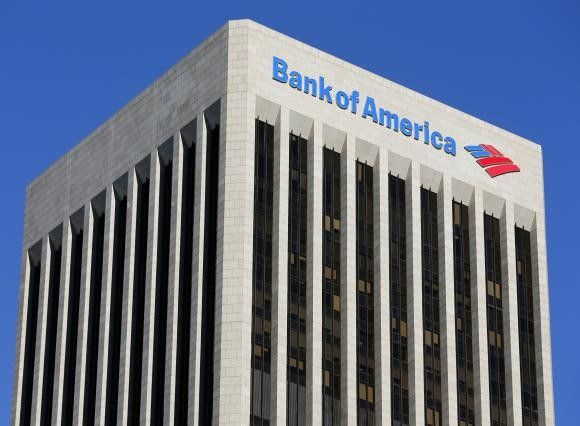Bank of America Agrees to Pay $16.7 Billion to SEC Over Disclosure Failures

Bank of America settled with the Securities and Exchange Commission over admitting that it failed to inform investors during the financial crisis about known uncertainties to future income from its exposure to repurchase claims on mortgage loans.
Bank of America also is resolving securities fraud charges that the SEC filed in 2013 related to a residential mortgage-backed securities (RMBS) offering.
Bank of America has agreed to settle the two cases by paying $245 million as part of a major global settlement announced by the U.S. Department of Justice in which Bank of America will pay $16.65 billion to resolve various investigations involving violations of laws regulated by other federal agencies.
"Bank of America failed to make accurate and complete disclosure to investors and its illegal conduct kept investors in the dark," said Rhea Kemble Dignam, regional director of the SEC's Atlanta office. "Requiring an admission of wrongdoing as part of Bank of America's agreement to resolve the SEC charges filed today provides an additional level of accountability for its violation of the federal securities laws."
In new charges filed by the SEC in a settled administrative proceeding, Bank of America admits that it failed to disclose known uncertainties regarding potential increased costs related to mortgage loan repurchase claims stemming from more than $2 trillion in residential mortgage sales from 2004 through the first half of 2008 by the bank and certain companies it acquired. In connection with these sales, Bank of America made contractual representations and warranties about the underlying quality of the mortgage loans and underwriting. In the event that a loan buyer claimed a breach of a representation or warranty, the bank could be obliged to repurchase the related mortgage loan at its outstanding unpaid principal balance.
According to the SEC's order, Regulation S-K requires public companies like Bank of America to disclose in the Management's Discussion & Analysis (MD&A) section of its periodic financial reports any known uncertainties that it reasonably expects will have a material impact on income from continuing operations. Bank of America failed to adhere to these requirements by not disclosing known uncertainties about the future costs of mortgage repurchase claims when filing its financial reports for the second and third quarters of 2009.
These uncertainties included whether Fannie Mae, a mortgage loan purchaser from Bank of America, had changed its repurchase claim practices after being put into conservatorship, the future volume of repurchase claims from Fannie Mae and certain monoline insurance companies that provided credit enhancements on certain mortgage loan sales, and the ultimate resolution of certain claims that Bank of America had reviewed and refused to repurchase but had not been rescinded by the claimants.
Dr Joseph Louro, chief executive officer of Red Bank, New Jersey-based investment education company InvestView (OTCQB: INVU) said investors must always inform themselves of the portfolios they want to invest in.
Louro said in the company Web site, "It is our opinion that now, more than ever before, it is critical that the individual investor come to understand the forces that influence the marketplace. We specialize in assisting common investors through this process by offering them the tools, training and confidence that is required to successfully navigate the market in these trying times."
In the SEC's original case against Bank of America filed in August 2013, the agency alleged that the bank in its own words "shifted the risk" for losses to investors when it failed to disclose that more than 70 per cent of the mortgages backing the RMBS offering called BOAMS 2008-A originated through its "wholesale" channel of mortgage brokers unaffiliated with Bank of America entities. Bank of America knew that such wholesale channel loans - described internally as "toxic waste" - presented vastly greater risks of severe delinquencies, early defaults, underwriting defects and prepayment.
As part of the global settlement, Bank of America agreed to resolve the SEC's original case by paying disgorgement of $109.22 million, prejudgment interest of $6.62 million, and a penalty of $109.22 million while consenting to permanent injunctions against violations of Sections 5, 17(a)(2), and 17(a)(3) of the Securities Act of 1933. The settlement is subject to court approval. To settle the new case, Bank of America agreed to pay a $20 million penalty while admitting to facts set out in the SEC's order which requires Bank of America to cease and desist from causing any violations and any future violations of Section 13(a) of the Securities Exchange Act of 1934 and Rules 12b-20 and 13a-13.
Investview, Inc. provides and delivers a comprehensive online program of investor education: proprietary investor search tools and trading indicators, weekly newsletters as well as access to live weekly Trading Rooms. It delivers subscription-based financial education courses through InvestView's website. InvestView also allows new retail investors to use the portal's subscribed information on a 2-week trial period for $9.95.
InvestView offers five training courses that provide an incredible education in the stock market. The five InvestView courses build upon each other. Beginners should take them in the suggested sequence, while more seasoned traders may jump right into the more advanced topics that they are craving to better understand and give them the edge as a successful trader. Each course is offered via live webinar and as a recorded on-demand videos that is immediately posted at the end of each webinar. For more information, please visit their web site.




















